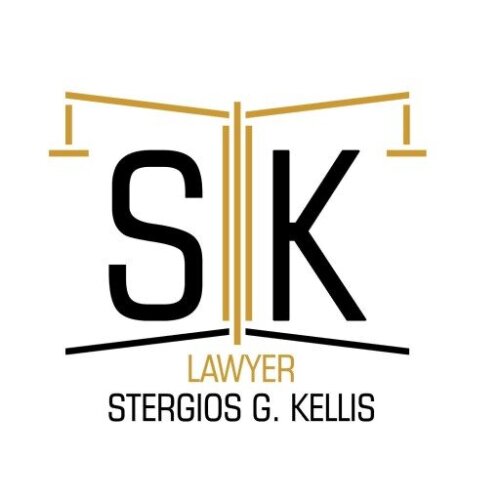Best Venture Capital Lawyers in Xanthi
Share your needs with us, get contacted by law firms.
Free. Takes 2 min.
List of the best lawyers in Xanthi, Greece
About Venture Capital Law in Xanthi, Greece
Venture capital in Xanthi operates within the broader Greek and European legal framework that governs corporate formation, investor rights, securities, taxation and regulatory compliance. Xanthi is part of the region of Eastern Macedonia and Thrace and benefits from Greek national programs and EU-backed initiatives that support startups and innovation. While most venture capital activity in Greece is concentrated in Athens and Thessaloniki, founders and investors in Xanthi can access the same legal instruments, incentives and public programs as elsewhere in the country. Local legal advice helps translate national rules into practical steps for company formation, fundraising, employment, intellectual property protection and exit planning.
This guide explains the legal landscape and practical steps people in Xanthi should consider when engaging with venture capital transactions. It is intended to be an accessible starting point for founders, early employees, angel investors and entrepreneurs who need to understand when and why to involve a lawyer, what laws and authorities matter, and where to look for help.
Why You May Need a Lawyer
Venture capital transactions involve complex agreements and multiple legal risks. A lawyer can help protect your interests, anticipate pitfalls and make transactions enforceable. Common situations where people need legal help include:
- Structuring the business and choosing the right corporate form for fundraising and future exits.
- Drafting and negotiating term sheets, share purchase agreements and investment agreements.
- Preparing and reviewing shareholder agreements that cover governance, transfer restrictions, liquidation preference, anti-dilution and exit mechanics.
- Creating employee option plans and ensuring compliance with labour and social security rules.
- Conducting or responding to investor due diligence, including organizing corporate records, cap table, contracts and IP assignments.
- Protecting intellectual property and making sure inventions, copyrights and trademarks are properly assigned to the company.
- Navigating tax issues and incentives that affect founders, investors and employees.
- Ensuring compliance with securities rules, anti-money laundering requirements and any sector-specific regulation.
- Facilitating cross-border investments, where foreign investors, currency movement and double taxation treaties may apply.
Local Laws Overview
The legal framework relevant to venture capital in Xanthi is primarily national Greek law, EU law and certain industry rules. Key aspects to know include:
- Company law and corporate forms - The most common vehicles for startups in Greece are the Private Company (IKE) and the Public Limited Company - Societe Anonyme (AE). An IKE is often used for early-stage startups because of its flexible governance and lower capital formalities. An AE is usually preferred for later-stage fundraising or for structuring share classes more like conventional venture financings. Greek company law sets out incorporation, governance, directors duties and formalities.
- General Commercial Registry (GEMI) - All companies must register with GEMI. Accurate and current registration is critical for investor due diligence and to validate corporate acts.
- Securities and investment regulation - The Hellenic Capital Market Commission oversees market conduct and certain investor protection rules. While many VC investments are private and not subject to public offering rules, specific transactions may trigger disclosure or approval requirements, especially if professional funds are involved.
- Fund formation and VC vehicles - Venture capital firms can operate as management companies, limited partnerships or other forms. Fund activity may be regulated depending on fund size, investor profile and whether the fund markets to the public.
- Tax and incentives - Greece offers tax rules and incentives that can affect startups and investors, such as preferential tax treatments for certain employee equity schemes and various R&D incentives. Understanding timing of taxation, withholding and tax residency is important for both founders and outside investors.
- Employment and social security law - Employment contracts, independent contractor arrangements and stock option plans are all subject to Greek labour law and social security obligations. Misclassification of workers or poorly designed option plans can create unexpected liabilities.
- Intellectual property and commercial contracts - Robust IP ownership and licensing agreements are critical. Greek law implements EU directives on trademarks, designs and copyrights, but contractual clarity is crucial for investor confidence.
- Anti-money laundering and foreign investment - Investors may be subject to AML checks, Know-Your-Customer requirements and, in some sectors, additional approvals for foreign investors.
- Local courts and dispute resolution - Contractual disputes are resolved in Greek courts unless parties agree to arbitration. Many international investors prefer arbitration clauses, but enforceability and procedure should be reviewed with counsel.
Frequently Asked Questions
What legal entity should I form in Xanthi to attract venture capital?
Early-stage startups commonly form a Private Company - IKE - because of lower formalities, flexibility in governance and cost-effective incorporation. As the company scales or seeks sophisticated equity structures, many convert to a Societe Anonyme - AE - to issue preferred shares and attract institutional investors. A lawyer can advise based on your financing plan, investor expectations and projected exit strategy.
How does a term sheet work and is it legally binding in Greece?
A term sheet sets out the main commercial terms of an investment - valuation, investment amount, share class, governance, liquidation preference and conditions precedent. Term sheets are often non-binding on core economic points but contain binding provisions on confidentiality, exclusivity and governing law. Whether a particular term is binding depends on how it is drafted. Legal advice ensures you understand which clauses create obligations and which are for negotiation only.
What protections do investors typically insist on?
Investors commonly require shareholder agreements or articles that include investor board representation or observer rights, protective veto rights on key matters, liquidation preferences, anti-dilution protection, tag-along and drag-along rights, information rights and transfer restrictions. Founders should balance these protections with the need to retain control and flexibility.
How do stock option plans work under Greek law?
Employee equity plans can be structured as share options, stock grants, phantom equity or other forms. Greek labour and tax law affect how these plans are implemented, when tax is due and the social security treatment. Careful drafting is needed to ensure options vest properly, that option exercises are executable and that the company remains compliant with reporting and withholding obligations.
What are the main tax considerations for founders and investors?
Tax issues include personal income tax on exercise of options or sale of shares, corporate tax implications for the company, VAT considerations for certain services and capital gains treatment for investors. Greece has tax incentives for R&D and certain types of investment. Founders and investors should seek tax advice early to optimise structure and avoid unexpected liabilities.
How should intellectual property be handled before fundraising?
Investors expect clear ownership of key IP. Founders must ensure all employee and contractor inventions are properly assigned to the company and that licences are documented. Conduct an IP audit before fundraising to identify gaps and take corrective action. Without clear IP title, valuation and investor interest can be significantly affected.
Can foreign investors invest in a Xanthi-based startup and what should they consider?
Yes, foreign investors can invest. Key considerations include company governance, share transfer mechanics, currency controls if any, tax residency and withholding, double taxation treaties and compliance with AML rules. Cross-border investments commonly require coordination between local Xanthi counsel and the investor's home-country counsel.
What is due diligence and how should I prepare?
Due diligence is the investor review of legal, corporate, financial, tax, IP and commercial records. Preparing a data room with incorporation documents, cap table, shareholder agreements, contracts, IP assignments, employee agreements, financial statements and permits speeds the process and improves negotiating leverage. Legal counsel can prepare a due diligence checklist and remediate issues in advance.
What are typical timelines and costs for closing a VC round in Greece?
Timelines vary widely - a small seed round can close in a few weeks if documents are ready, while larger rounds or rounds with foreign investors often take two to three months or more. Legal costs depend on complexity, number of parties and negotiation intensity. Expect fixed fees for standard documents and additional hourly charges for negotiation, due diligence and regulatory work. Ask lawyers for fee estimates and any retainer requirements up front.
What happens at exit and what should I plan for legally?
Exits include trade sales, initial public offerings and share buyouts. Legal preparation for an exit includes clean corporate records, resolved IP ownership, clear capitalisation, compliance with employee and tax obligations and properly drafted shareholder agreements to facilitate transfer mechanics. Founders should plan early for exit triggers, drag-along and tag-along mechanics, and tax-efficient distribution of proceeds.
Additional Resources
For people in Xanthi seeking further information or official guidance, the following institutions and organisations are useful starting points. Contact a local lawyer to interpret how their programs and rules apply to your situation.
- General Commercial Registry - GEMI - for company registration information and public filings.
- Hellenic Capital Market Commission for matters related to securities and fund regulation.
- Hellenic Development Bank and national programs that support entrepreneurship and may co-invest with private funds.
- EquiFund and related EU-backed investment initiatives that support venture capital and seed funding in Greece.
- Enterprise Greece and the Ministry of Development and Investment for investment incentives and export support programs.
- Local Chamber of Commerce of Xanthi for regional business support, networking and local regulatory guidance.
- The Bar Association covering Xanthi for referrals to local lawyers and to verify professional credentials.
- University entrepreneurship centres and incubators in the region, including those associated with the Democritus University of Thrace, for local startup support and mentoring.
Next Steps
If you need legal assistance with venture capital matters in Xanthi, consider these practical next steps:
- Identify the core need - fundraising, corporate restructuring, IP assignment, employment issues or tax planning - so you can brief counsel efficiently.
- Seek a lawyer with experience in startup and venture capital transactions. Ask about specific deals they have handled, familiarity with investor terms and any relevant sector knowledge.
- Request an initial consultation and a clear fee estimate. Ask whether the lawyer charges fixed fees for standard documents and what tasks will be billed hourly.
- Prepare basic documents in advance - incorporation papers, cap table, shareholder agreements, employment contracts, IP assignments and a short business plan - to make the consultation productive.
- If you anticipate cross-border investors or future fund formation, choose counsel who can coordinate with foreign counsel or who has international experience.
- Use the local resources listed above to complement legal advice with funding programs, grants and mentoring.
- Keep communication clear and document key decisions in writing. Proper legal documentation early reduces risk and increases investor confidence.
Engaging knowledgeable counsel early in the process is one of the most effective ways to protect value, speed fundraising and avoid costly disputes later. If you are unsure where to start, contacting the Xanthi Bar Association for a referral or arranging a brief strategy meeting with a VC-experienced lawyer is a practical first move.
Lawzana helps you find the best lawyers and law firms in Xanthi through a curated and pre-screened list of qualified legal professionals. Our platform offers rankings and detailed profiles of attorneys and law firms, allowing you to compare based on practice areas, including Venture Capital, experience, and client feedback.
Each profile includes a description of the firm's areas of practice, client reviews, team members and partners, year of establishment, spoken languages, office locations, contact information, social media presence, and any published articles or resources. Most firms on our platform speak English and are experienced in both local and international legal matters.
Get a quote from top-rated law firms in Xanthi, Greece — quickly, securely, and without unnecessary hassle.
Disclaimer:
The information provided on this page is for general informational purposes only and does not constitute legal advice. While we strive to ensure the accuracy and relevance of the content, legal information may change over time, and interpretations of the law can vary. You should always consult with a qualified legal professional for advice specific to your situation.
We disclaim all liability for actions taken or not taken based on the content of this page. If you believe any information is incorrect or outdated, please contact us, and we will review and update it where appropriate.












